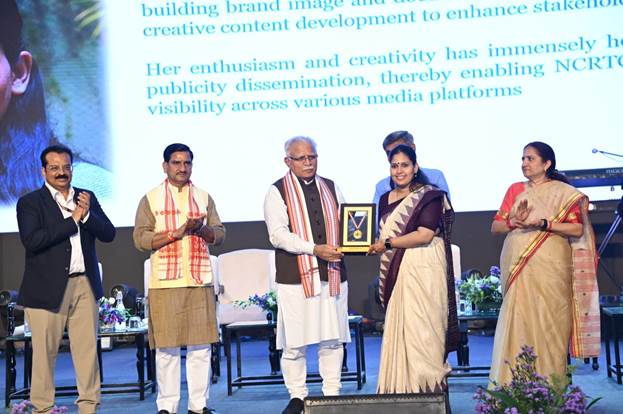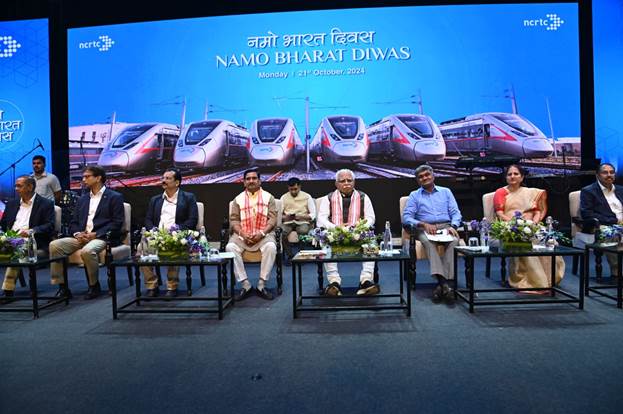Namo Bharat Diwas Celebrated Marking One Year of Namo Bharat Train Operations
The first anniversary of the operations of Namo Bharat Trains was celebrated as Namo Bharat Diwas in New Delhi today. The National Capital Region Transport Corporation (NCRTC) organized a special evening event to commemorate this significant milestone in India’s transportation history. The event was graced by Hon’ble Union Minister of Housing and Urban Affairs, Shri Manohar Lal Khattar, and Union Minister of State for Housing and Urban Affairs, Shri Tokhan Sahu. Shri Shalabh Goel, Managing Director of NCRTC, along with other NCRTC Directors, were also present to celebrate the occasion.
At the event, Excellence Awards were presented to outstanding employees for their contributions towards the success of the Namo Bharat initiative.

Addressing on the occasion Shri Manohar Lal said that this feat was a moment of great pride and a step towards Viksit Bharat.
“We rank third in terms of the longest metro network in the world. We might surpass the US in the next few years,” the Union Minister said. He also emphasized on the need to work on R and D to provide hassle-free services to people.
The Namo Bharat Trains represent India’s first Regional Rapid Transit System (RRTS), with the first 17-kilometer priority section between Sahibabad and Duhai Depot inaugurated by the Hon’ble Prime Minister of India, Shri Narendra Modi, on 20 October 2023. Since then, two additional sections have become operational, with the 17-kilometer stretch between Duhai and Modinagar North inaugurated on 6 March 2024, and the Meerut South RRTS station operationalized on 18 August 2024.
Currently, the Namo Bharat services operate across a 42-kilometer corridor covering nine stations, including Sahibabad, Ghaziabad, Guldhar, Duhai, Duhai Depot, Muradnagar, Modi Nagar South, Modi Nagar North, and Meerut South. The corridor will soon expand to 54 kilometers with the upcoming addition of the Sahibabad to New Ashok Nagar section, which will connect key stations such as Anand Vihar and New Ashok Nagar.
The RRTS distinguishes itself from other transport systems by providing high-speed, efficient connectivity between suburban areas, significantly reducing commute times over longer distances, and reinforcing India’s commitment to developing sustainable urban transport solutions.

